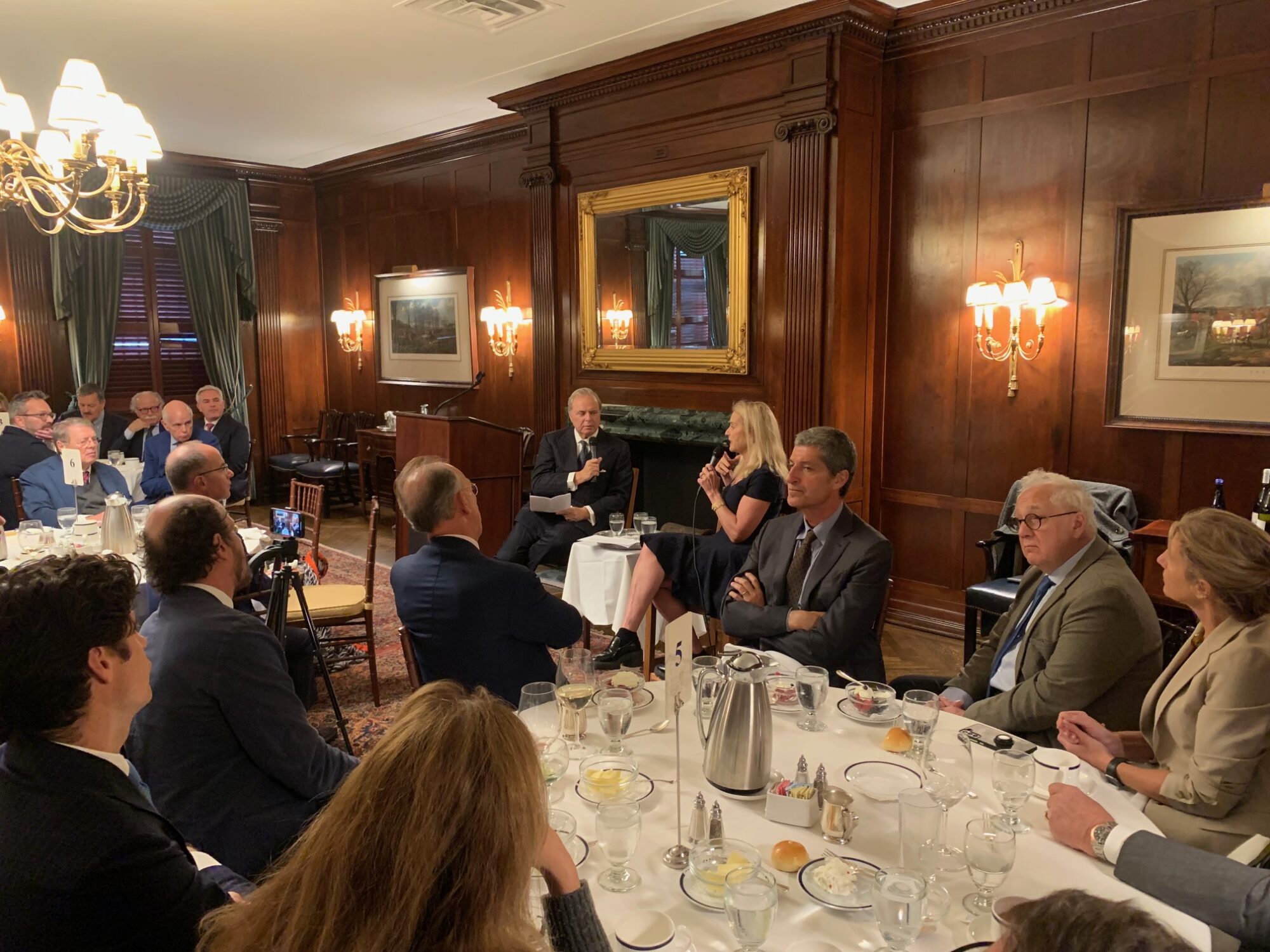Earlier today, Kerry Kennedy joined the Gruppo Esponenti Italiani (GEI) for its monthly lunch and Q&A session at the Knickerbocker Club in Manhattan, the last such event from the Italian nonprofit before the upcoming presidential elections. A lawyer by trade and head of the human rights organization Robert F. Kennedy Human Rights, Kerry took part in a wide-ranging discussion covering international and domestic politics, as well as the legacy of her late mother Ethel, who passed away less than two weeks ago.
GEI president Mario Calvo-Platero began the discussion by thanking Kennedy for her presence despite her recent loss. Kerry took the opportunity to share a story of Ethel from her childhood, in which her mother slipped a note in an FBI station’s suggestion box (RFK and JFK’s immediate families often passed through federal buildings that generally were off-limits to the public to reach their offices) with the recommendation, “get a new director.” A rather gumptious prank to play on the infamously paranoid and vengeful director of the FBI at the time, J. Edgar Hoover; one which Kerry said left her imprinted with the importance of “a sense of humor and speaking truth to power.” Ethel Kennedy founded the Robert F. Kennedy Center for Justice and Human Rights in 1968.
Reflecting further on her father and uncle’s assassinations, she posited that the political landscape we have today owes much to the cruel halting of their visions. Had her father not been killed in 1968, he likely would have won the general election, which she said would have meant “no Nixon, no Watergate,” nor the invention of the “southern strategy,” a political shift started by Nixon and furthered by Republicans through to today, which fanned racist sentiment in what had been the solidly Democratic south before the Civil Rights movement. For Kennedy, Trump’s rhetoric is the latest iteration of this, amping up what was once done through innuendo: “Trump says it more explicitly, does it more openly, and uses it more nefariously in a way that is extremely, extremely dangerous for our country and our world.”

Asked whether she felt that left-wing politicians have moved towards their own extreme, Kerry disagreed, giving a nuanced take on why cultural and social divisions have become more prevalent in today’s political landscape. She began by explaining how “there are a lot of Americans who believe they had a deal” in this country, which she said was defined by employment (even less desired jobs like coalminer or factory worker), housing, education for their children. That deal, she explained, was then dismantled through a series of factors that have decimated the middle class like offshoring, the 2008 financial crisis, and the opioid crisis. For Kerry, the disorientation of economic precarity is “scary, and people are angry,” making them less likely to accept social changes that recongize differences (religion, race, gender, sexual orientation etc.) that challenge their upbringing, despite those changes being laudable expansions of freedom.
Kennedy also offered her insights into the current presidential race, saying that she “would rather be Kamala” given the current polling data, although she acknowledged how slim the Democratic nominee’s lead is and the fine margins on which the race is currently playing out. She noted that standard political organizing with a persuasion strategy was functionally useless at this point, and that the race was “going to be a question of who’s more organized on the ground in those swing states.”
Kennedy also shared her perspective on international issues. One of the problems she thinks could be most affected by another Trump presidency is the war in Ukraine, and she expressed concern over an expanding invasion if the US cuts off support. “If you think Putin stops at Ukraine, forget it,” Kennedy said, indicating that former soviet states like Latvia, Moldova, and Georgia would be under greater threat from Russia in such a scenario.
With her audience of representatives from various corners of the financial sector, Kennedy made her strongest appeal against Trump directly to them. “You guys are all in finance,” she said, “you know what this would do to the security of the financial system.” She told them that the “good news” was that he would cut taxes and regulations. Bad news? “That won’t matter because the entire financial system may collapse.”












